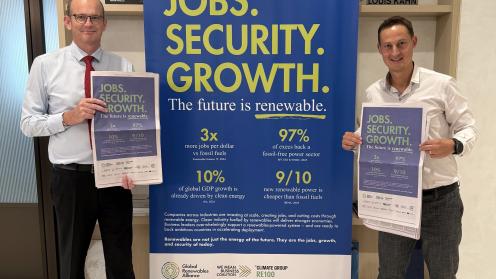Green hydrogen at New York Climate Week – the last mile of decarbonisation
The Electrotech Revolution is the title of a brilliant presentation made last week by the organisation Ember, arguing that the rapidly scaling up of solar and batteries is spearheading an extraordinarily fast shift from fossil fuels to renewable energy. This week, the Electrotech Revolution comes to New York, and demonstrates that no matter global politics, renewable energy is increasingly the cheapest option, providing most jobs and growth, not to mention that it is central to avoiding climate disaster.
Green hydrogen is central to the Electrotech Revolution. We are making huge strides towards direct electrificiation, but there is still an urgent need to scale up the production and use of renewable green renewable hydrogen and ammonia, to decarbonise shipping, iron and steel, fertilisers and more as illustrated by Ember here:
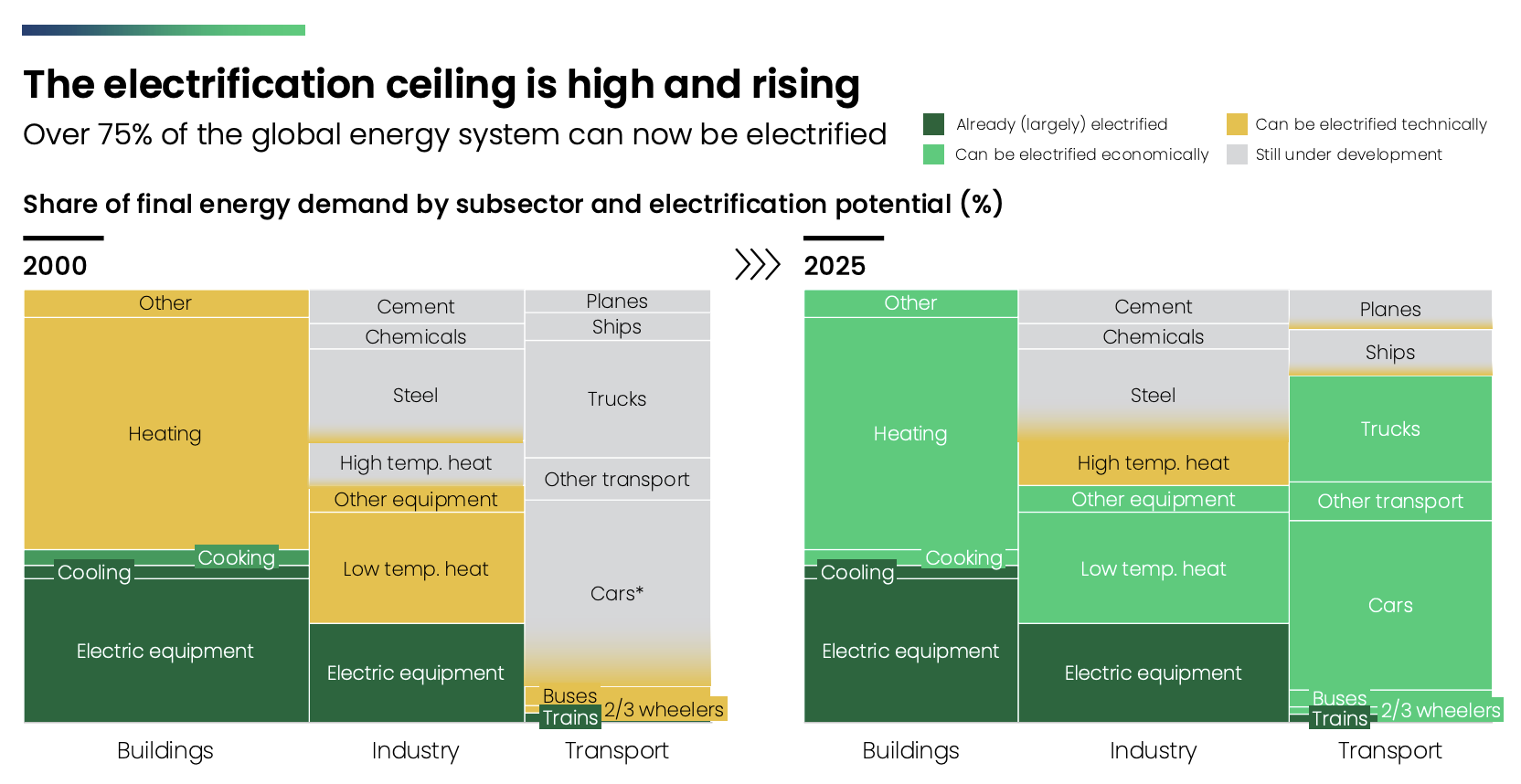
Global Renewables Alliance
“Jobs. Security. Growth” are the headlines in the campaign the Global Renewables Alliance launched on Monday including in the New York Times. Topics like grid reform and finance are likely to figure highly as the Electrotech Revolution is discussed. Today and tomorrow the Global Renewables Alliance, which GH2 co-founded with the Global Solar Council, Global Wind Energy Council, International Hydropower Association, International Geothermal Association and Long Duration Energy Storage Council together with GH2’s corporate founder Fortescue will host the Global Renewables Summit with President William Ruto of Kenya, EU Commission President Ursula von der Leyen and others.
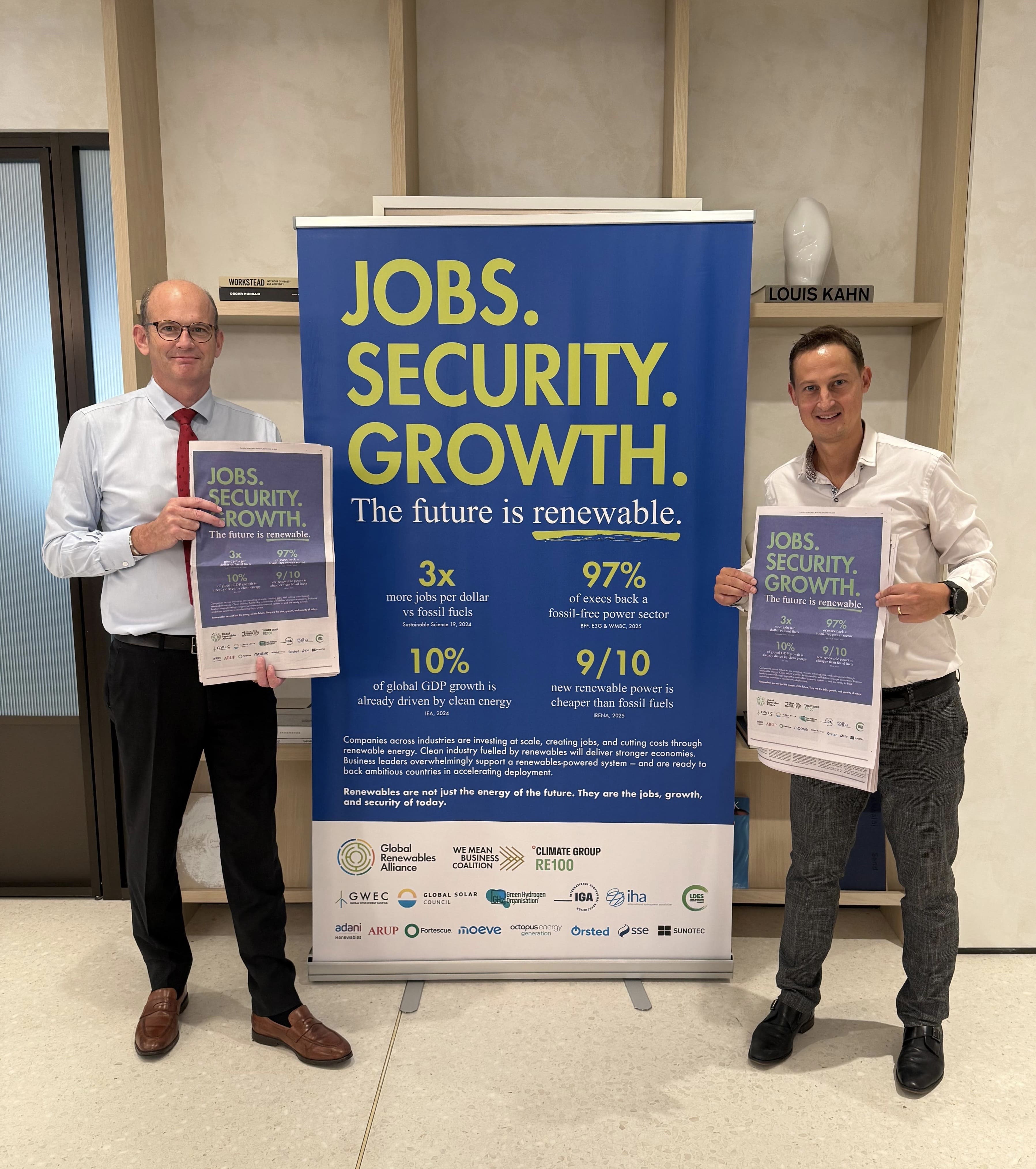
As part of the GRA Global Renewables, GH2 will bring together companies like Adani, Moeve and Topsoe for a discussion on Building the Next Industrial Epoch with Renewable Energy, where we hope to co-develop an action list of measures governments can take to faster enable sectors which rely on green hydrogen. We will return to some of the themes we have been working together with the Industrial Transition Accelerator such as last week’s Renewables and Green Hydrogen Forum in Cairo, calling for better pricing of emissions and improved financial de-risking project in emerging markets and developing countries.
Standards and Europe’s search for balanced financial and regulatory measures to scale genuinely low carbon hydrogen
As we shift our economies to renewables and green hydrogen, it is essential that standards and regulations favour the lowest carbon options and include robust emissions measurement criteria.
The climate benefits of hydrogen varies greatly depending on how it is produced and managed. If it is produced from fossil-fuelled electricity it can end up being worse for the climate than the fossil fuels it is replacing. Failure to fully limit methane leakage and capture and store CO2 when producing blue hydrogen from fossil fuels is also a major problem.
The first international standards for hydrogen emissions measurement are being developed by the International Organization for Standardization. While the Draft International Standard on hydrogen production has made some real improvements since it first surfaced, it must improve to provide a rigorous underpinning for the global truly clean hydrogen industry which governments can use as they develop their own policies and regulations.
This all comes at a time when there is pressure from some industry voices and the German government to relax the long-debated RFNBO green hydrogen rules which include requirements on additionality and matching location and time of renewable energy production with consumption by green hydrogen electrolysers.
We will be discussing this issue at an event co-hosted by GH2, the Environmental Defense Fund and the Natural Resources Defense Council on Wednesday. Read more in this blog we have just published.
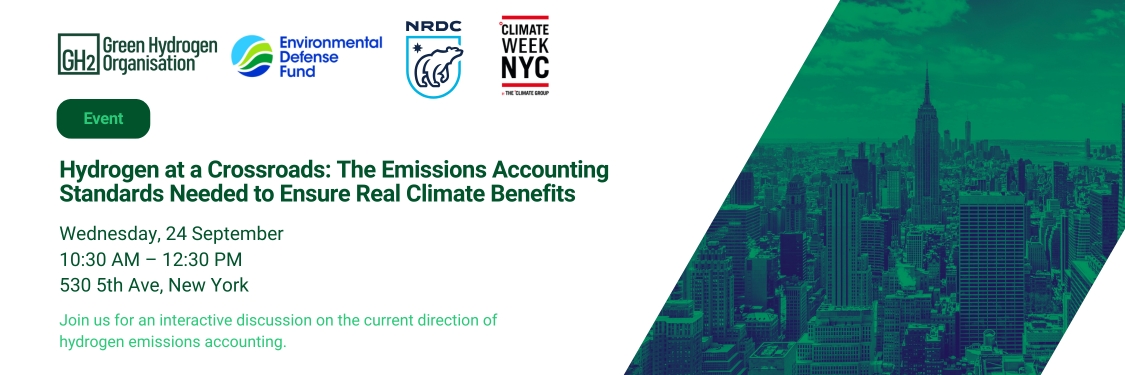
🔗 Register here to secure your place.
Towards shipping without emissions
With the International Maritime Organization (IMO) due to adopt its Net-Zero Framework in October, it will be considered at many meetings in New York this week, including a roundtable we are organising at the World Economic Forum. In this publication launched today we at GH2 explain why it is so important that the members of the IMO approve the framework and agree robust definitions of zero carbon fuels. The IMO has a unique opportunity to create a pathway towards shipping without emissions.
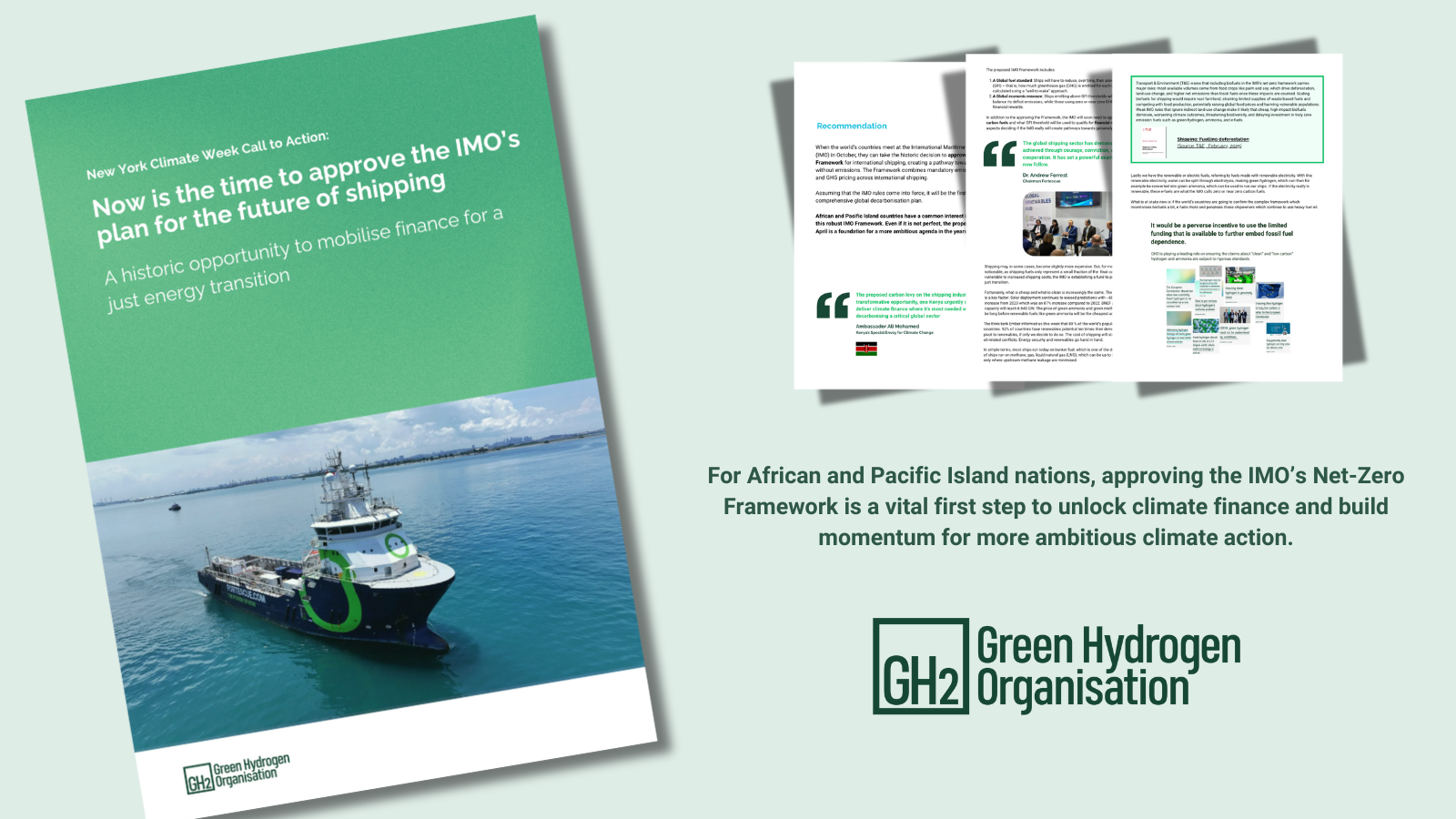
We look forward to reporting back on New York Climate Week. If you’re in town, please do get in touch!
Jonas Moberg, CEO, GH2
Joe Williams, Deputy CEO, GH2
